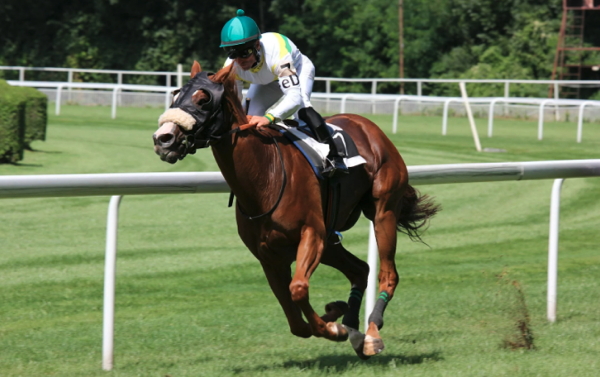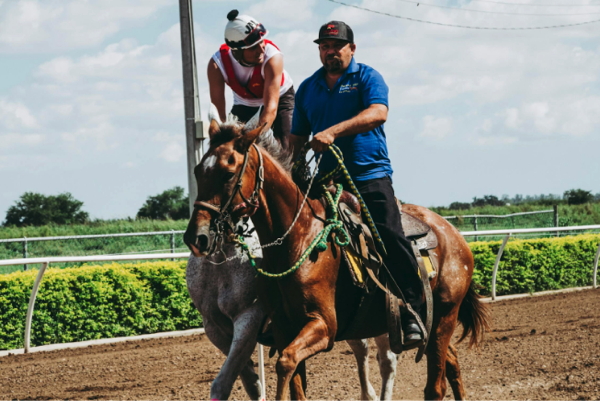 |
RacingBetter News |
| Tuesday 26th November 2024 | |
A Comprehensive History of Horse Racing in Asian Countries
Horse racing is a sport full of tradition and history that has grossly enticed different audiences and influenced world cultures. The enthusiasm for horse racing is more evident in Asia, where, over many centuries, it has grown into a socio-cultural phenomenon. The history of horse racing on this diverse continent does not involve just a competition but mirrors the ethos, traditions, and expectations of various civilizations. Horse racing has been an enticing sport, which reflects the economic and social order from ancient times to the modern-day cultures of this vast continent.
Horse racing has deep-rooted origins in Asia, going as far back as ancient times when horses were not only admired for their fantastic speed and strength but also deeply valued because of the essential parts they played in farming, transportation, and war. In most Asian cultures, these magnificent beings embody power, nobility, and freedom; hence, they became part of the society's histories and legends. And with time, this admiration gradually changed into an exciting form of competition, changing into what we call sport today.

Roots of Horse Racing in Asia
Asian horse racing has its roots in prehistoric societies. According to evidence, the sport was being engaged in China under Han Dynasty authority more than 2,000 years ago. Horses were admired for their speed, and they played an important role in military training and entertainment. These wonderful animals were valued not only for their speed and agility but also for their valuable contribution to farming and war. Racing was often associated with military training and was one of the forms of entertainment for the noble.
In India, too, evidence shows that horse racing dates back to time, where you can find mentions of horse racing in the ancient literature of Mahabharata. The sport achieved popularity among royal families and expert breeders. It worked out as one of the favorite sports among royal families, notably in places like Rajasthan, where professional horse breeders and trainers came into prominence. Horse racing came to Japan in the 19th century and became a trend, which marked the establishment of the Japan Racing Association in 1923 to further organize the sport.
• The tradition of horse racing betting
Of all the traditions surrounding horse racing, betting is among the oldest. It has always been part of the sport: betting on who wins a race. It adds that added layer of tension and anticipation for both the casual and regular racegoers. Horse racing bets have developed over the years, from the days when two spectators just created informal bets to the highly regulated industry of today. These days, in most of Asia, different betting platforms have integrated horse racing into their catalog of options for bets, expanding its accessibility to a really global audience. There are plenty of online sites that offer fantastic betting opportunities in Asia for all those interested in horse racing. These online sites are simply the best site for sports betting online.
• The rise of modern horse racing
Since time immemorial, horse racing has been molded by basic social changes such as the rise and fall of empires, the introduction of colonialism, and the processes of globalization. British rule, for instance, imposed formal structures on racing and betting in horse racing in India and Malaysia, shaping how each carries out the sport to this very day. British colonial influences weighed heavily in the development of horse racing throughout Asia. During this time, racing clubs and racetracks were established with the purpose of instituting standardized forms of racing and wagering. These provided the foundational framework for what is recognized as modern racing today. This was also the period when thoroughbred horses finally emerged onto the scene, increasing the level of competition and elegance in the sport.
With huge investments in infrastructure, combined with enormous betting markets, horse racing remains one of today's most dynamic cultural activities throughout Asia. Horse racing gave Hong Kong and Singapore center stage in the world and helped build their reputation as one of the coolest sports in the world. It combined the richness of its centuries-old tradition with the modern feel of today's entertainment, firmly placing it in many cultural calendars throughout the region. Horse racing is not just about racing alone; it is a social event that brings people from all walks of life together. The horse is a strong and fast animal, but it is also symbolic of status and money. Many owners and breeders invest highly in ensuring that their horses are the best for the races. The breeding and training of racehorses have conventionally been passed from generation to generation, with particularly successful methods being sought after and repeated consistently.
Cultural Significance and Traditional Practice of Horse Racing

Horse racing has retained its originality as one of the mature sports and is referred to as the sport of kings. This sport has integrated different cultures worldwide, as shown by the prestigious events held in China, Hong Kong, Singapore, South Korea, and Japan. Presently, horse racing takes several forms, including flat racing, jump racing, and harness racing. It has also fully adopted modern technology - from online gambling to live streaming - and it is now much more accessible to a large number of people.
Furthermore, it remains a fact that horse racing is an athletic sport that takes root from thousands of years of history and tradition. It originated in ancient civilizations and developed into an international competition, drawing plenty of fans to create a unique cultural realm. This is a sport that, up to this date, is still changing with the times. This sport, as it evolves with the times, stays true as a mirror to the relationship between man and horse, bringing to the forefront their speed, elegance, and beauty. Horse racing will doubtless be passed to future generations both as a spectator and participant sport.







